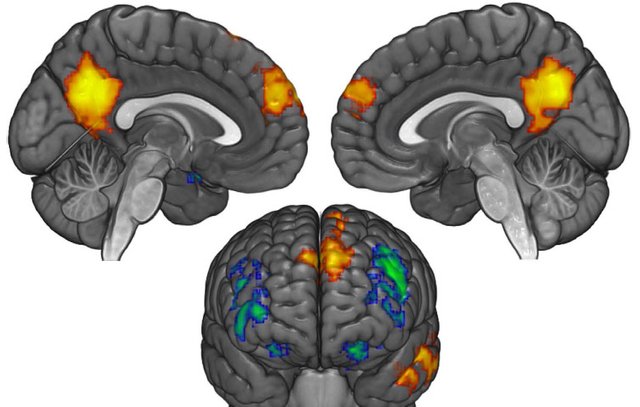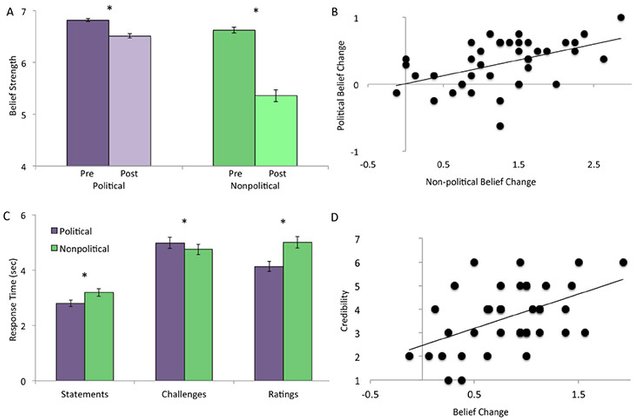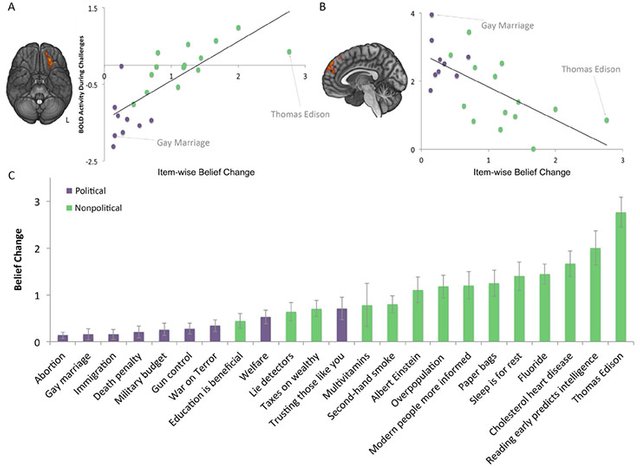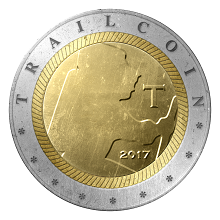Changing Minds is Hard, Especially When Identity is Attached to a Belief
Presenting evidence or facts doesn't always get accepted. We can dismiss evidence that contradicts our firmly held beliefs. There is even the backfire effect where we can dig into our belief and hold on tighter than before.

source
A new study shows that challenging political beliefs activates areas of the brain that govern personal identity and emotional responses to threats.
Published in Scientific Reports on December 23rd, Neural correlates of maintaining one’s political beliefs in the face of counter-evidence shows how much we are associating our identity with beliefs.
The study set out to look at how much people change their minds on political and nonpolitical issues when provided with counter evidence. This would help them determine which brain networks responded to firmly held beliefs.
Contradictory arguments were presented to 40 liberals that held strong political and nonpolitical views. They were all examined through fMRI see how their brains responded to their beliefs being challenged.
Nonpolitical beliefs held the most flexibility when they gauged the strength of their beliefs in a statement. For example, "Albert Einstein was the greatest physicist of the 20th century". But reconsidering political beliefs is another issue entirely. Those who support military, and the funding of the military, would not budge when asked to reduce funding for the military.

source
When their political beliefs were challenged, it produced an increase in activity of the default mode network, which are sets of interconnected structures that are associated with self-representation (identity) and disengagement from the external world to focus on ourselves. A narrowing of our mental vision takes place.
The amygdala is also involved with perceiving threats and anxiety. The emotional salience of stimuli engages our attention bias and availability heuristic so we focus on it the most and feel threatened, anxious or emotional, which makes us less likely to change our minds.
Each participant chose 8 political and 8 nonpolitical statements that they said they believed in, and were shown 5 counterclaims to challenge each statement they accepted. Then the participants rated the strength of the belief in the original statements on a scale of 1 to 7. Counterclaims to political beliefs tended to not change minds, while counterclaims to nonpolitical beliefs were more easily influenced to create doubt and reduce the confidence and strength in the statement they previously believed.

source
One thing to note is that all the participants were strong liberals, so it's not clear how the results would turn out if it was applied to conservatives or people with less polarized political beliefs. Previous studies have found structural or functional differences between the brains of conservatives and liberals. Despite being a liberal, when someone's belief is under attack they take that threat personally and proceed to conserve the belief. Conservatives have that tendency for increased threat avoidance. In this way everyone tends to act as a "conservative".
These findings shed light on the resistance to change that emotion plays in our attachment to belief.
When our deeply held beliefs are challenged, rather than pay attention to the external world and take in stimulus and process it properly in cognition, we often engage in stimulus-independent internally-directed cognition which creates a feedback-loop that is detached from the objective reality around us.
Emotions come into play in the persistence of our beliefs which clouds our ability to see things properly. The brain's systems for emotions is engaged when protecting our psychological and identity frameworks that are strongly attached to beliefs.
The neural systems involved in upholding beliefs and motivated reasoning are also better understood. The findings suggest that the Default Mode Network is important for higher-level thinking about the personal beliefs and values we hold dear, whether they are true or false.
The new study doesn't mention the backfire effect but they are essentially explaining this as well. People become more hardheaded and ingrained into their political beliefs when contradictory evidence forces them to take a defensive position. So it's like you are bunkering up, digging into the trenches for a battle with something attacking your identity through the belief that you're attached to and don't want to let go of.
I have talked about identity and attachment in many posts before, how our sense of self and worldview can be based on false information and we become attached to that falsity as part of our ego-personality-identity constructs. To attempt to dismantle and destroy a falsity is felt as an attack on a person themselves when they have become attached to that falsity as part of their sense of self and identity. This results in emotionally defensive behavior in order to maintain their false identity.
Lead author Jonas Kaplan explains how difficult it is for us to reevaluate new information once we become attached to it as part of ourselves.
"Political beliefs are like religious beliefs in the respect that both are part of who you are and important for the social circle to which you belong. To consider an alternative view, you would have to consider an alternative version of yourself."
That's partially why attachment is the root of all suffering. We get attached to falsity and then truth comes along and we don't want to accept the truth because we're too attached to what's false. This prevents us from moving forward in alignment with truth and reality.
These findings are helping researchers understand when and why people are likely to change their minds. One thing that troubles me is they are looking at this in order to determine and know how, and through which statements, someone may be persuaded to change their political beliefs. They view this as a key for societies progress.
We are the age of the scientific dictatorship in many ways. These social science models can be used for social engineering and manipulation of consciousness towards political agendas. I always appreciate more discovery in knowledge of ourselves, but it's a bit alarming when the scientists seem to lack a certain level of integrity. At least that's how their message comes off to me.
And of course they mentioned the importance of this capability to tackle the fake news problem...
As much of my work mentions, emotion is an important part of our internal feedback process to evaluate and apply salience to things in order to motivate us to act. But letting emotion override an honest evaluation process is not beneficial.
References:
- Hard-wired: The brain's circuitry for political belief
- A new brain study sheds light on why it can be so hard to change someone's political beliefs
- Neural correlates of maintaining one’s political beliefs in the face of counterevidence
Related posts:
- Belief Bias - Cognitive Biases (Pt.10)
- Infatuated with Ideas and Beliefs
- Beliefs - A Short Introduction
If you appreciate and value the content, please consider:
@krnel
2017-01-18, 7pm

If you have an aim, emotions are fantastic servants, but treacherous masters.
Well said!
Hello @krnel,
Congratulations! Your post has been chosen by the communities of SteemTrail as one of our top picks today.
Also, as a selection for being a top pick today, you have been awarded a TRAIL token for your participation on our innovative platform...STEEM.
Please visit SteemTrail to get instructions on how to claim your TRAIL token today.
If you wish to learn more about receiving additional TRAIL tokens and SteemTrail, stop by and chat with us.
Happy TRAIL!

Thanks for another great post! So much quality again.
I actually heard the results of either this research or a similar one you refer to, on CBC "Quirks & Quarks", a few weeks ago, where Bob McDonald was interviewing the researchers. It was brilliant, just like your article, and they had linked the results of it to the historical development of our brain, most specifically to the speed at which our ancestors had developed and the way of life they lived in.
Way back, our ancestors belief development was based on experiences on which their survival depended and the speed at which such values could change was very very slow as the pace of life was a tad different then.
Especially back then, if a change was to happen that would challenge the belief, it had occurred slowly, compared to what we experience nowadays. The brain would consider it, almost as a matter of life and death and would follow a natural movement of change itself. It allowed for a certain level of preservation of potential for survival within a certain group of a specific geographical location.
Now, the interesting part of it came when they mentioned two polarized modes of thinking: The conservative and the liberal. Historical arguments regarding the return to past values were the only path by which to change both polar modes of thinking by the people's opinion and, therefore, beliefs were transformable if one were to use historical view of the past...
From here, the question remains solid, what is your history, especially knowing that the #1 history lesson is that people don't remember their history and we need to repeat it over and over and over again? When the perception of a certain idea of "what was the past" has came to become the new norm, a whole set of new beliefs can be used by the people wanting to control the masses. Between you and I, if this isn't in itself an emergency call for us to learn our history, what will ever do?!?
All for one and one for all! Namaste :)
Thanks for the great feedback. Sounds like it was a good episode on CBC. Yup, I use the Orwell 1984 quote often, who controls the past control the future, and who controls the present controls the past (history books, narrative). If we don't learn from the past mistakes others have made we are more likely to repeat them. The whole point of history is not simply to record data, that in itself is rather mundane. But a real purpose is to learn of mistakes, solution, and improve upon the overall direction of we are going.
I wonder: If a person knows the mind has this bias, does that enable them to overcome it?
Yes it does. Reflection, contemplation, and higher order governing can control responses based on emotional stimulus within us.
As corny as it may sound but like the matrix, some people are so dependent and attached to the system and their beliefs that they will do anything to rationalize with their understanding and defend it. Some may never be able to be" unplugged".
The awareness of self and conscious thought can allow one to be "awakened" and see pass the falsity and become detached from their beliefs. Then only truth remains.
Well said! Thanks for the feedback.
Wise words!
Speaking of wisdom:
That similar intensity prolly Comes from us routinely mixing up politics and morals. As @thecryptofiend discussed in his post "Why Moral Comparisons May Be More Painful Than Social Ones" perceived moral inequality does seem to be more galling than other types of perceived inequality. With the implication that our character - and the character of others' - is more important to us than ability, possessions, etc.
The old wisdom about politics asserted a division between the two. "Morals sure ain't politics, and a lot of politics sure ain't moral." This dividing line, interestingly enough, meant that politics was dominated by practical reasoning instead of moral reasoning - which made disagreement easier on us. It's far less difficult to get along with or compromise with the wrong-headed or impractical than it is to compromise with the immoral. The former makes you reasonable, while the latter makes you compromised. (!)
Thank you for the feedback. The definition of the word is not understood by people, nor the depth of applicability in life understood. Until we do, humanity will be a stalled or only creeping ahead in evolution in consciousness. Morality is the key to life and living. Uniting with people who are simply a bit foolish is more agreeable than the impossibility of unity with immorality. It's a fracture within our core being to try to unite with immoral behavior.
I like your article and your interpretation of the data seems to me to be adequate. However I don't see a proper effort put forth in the study to determine the role of emotions in triggering the part of the brain they are promoting as significant. I would much rather see the study make longer comparisons of the scans to more questions which would be structured to view how the brain responds when not emotionally involved and how it does when emotions are triggered. e.g. 5-10 questions guaranteed to be neutral, (which I admit for many subjects may be rather difficult to create) and 5-10 questions known to be emotional triggers.
Compare that data with another group of subjects which are known to be generally unemotional when considering the same triggers. Then good value can be attained by showing evidence for how emotions affect beliefs. Then to really get serious with the study data examine the two groups separately to see if there is a way to release the emotional group through some from of therapy a.k.a. benign manipulation and for the other group try to create emotional triggers through malign manipulation to see if they are susceptible as well under the proper conditions. Thereby presenting evidence that if one wishes to be logically stable, they must first be emotionally stable. I believe it is not enough to present half the data and half the case when so much more value is there to be derived.
KUTGW, Rollin.
That would be a good experiment to run. They only looked at what happened with the brain in contradictory information presentation. The role of emotions is tied to the response. Salience is required to attribute value, importance and weight for attachment to take place. Seeing which part was happening when relative to the neural activity would be interesting indeed. Thank you for the feedback.
Great article. Unique informations.
Thank you for making me smarter :)
Very well written, and informing article, Thanks again Kris
I wish they tested other political spectrums. That would be very funny if the experiment showed strong bias with liberals.